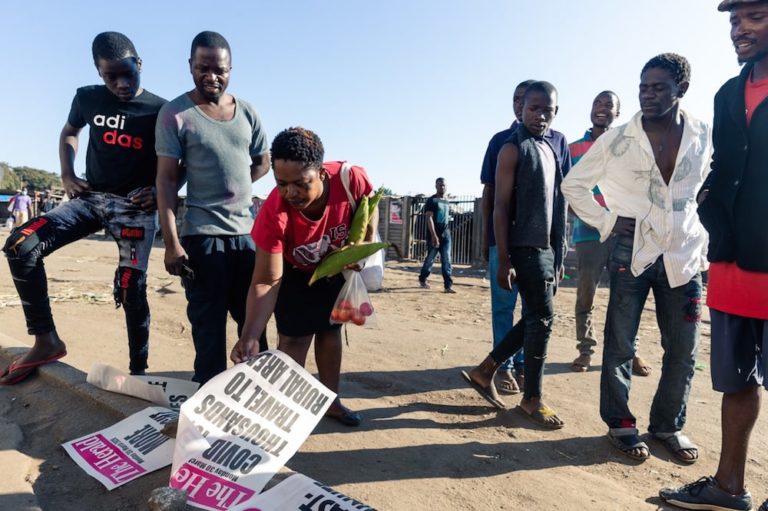(MISA/IFEX) – The Namibian Broadcasting Corporation (NBC) scored a significant victory for the cause of media freedom in Namibia when the High Court refused to confirm an interim interdict that stopped the broadcasting of an allegedly defamatory television programme. On 16 August 2000, Acting Judge John Manyarara ruled that even if an NBC programme on […]
(MISA/IFEX) – The Namibian Broadcasting Corporation (NBC) scored a significant victory for the cause of media freedom in Namibia when the High Court refused to confirm an interim interdict that stopped the broadcasting of an allegedly defamatory television programme.
On 16 August 2000, Acting Judge John Manyarara ruled that even if an NBC programme on businessman Stefanus Mahongo Muheto defamed him, the court had to rule against granting a final interdict to stop the broadcasting of the item on his business dealings.
Muheto had approached the High Court in June 1999 to ask for an interim order to stop the broadcasting of a programme on him and his businesses. He had heard that the NBC was about to air a programme that evening in which it would be alleged that his companies, Namibia Legal Wise CC and Namibia Jaguar Club CC, were bogus institutions set up to defraud members of the public. The order was granted.
In June 2000, lawyers for the two sides argued before Acting Judge Manyarara on whether the order had to be made a final order or be discharged.
The NBC insert, compiled by reporter Unomengi Kauapirura, did contain defamatory allegations because dishonest conduct on the part of Muheto and the businesses was alleged, the court found. However, Acting Judge Manyarara pointed out that Muheto and the businesses not only had the onus to prove that what was about to be broadcast was libelous, but also that the NBC would not be able to successfully defend a case if they were sued for libel. If Muheto could not prove that, he was not entitled to have the interim order made final.
Significantly for the development of Namibian law in the field of the media and press freedom, Acting Judge Manyarara relied on two recent landmark South African cases that dealt with media freedom as support for his ruling. Noting that the NBC’s response to Muheto’s claims was that the programme was in the public interest and the allegations essentially true, he remarked that this clearly placed the response within the area of principles set out in the two recent South African cases.
In the one case cite, Hix Networking Technologies v System Publishers (Pty) 1997, it was stated that freedom of speech was not a right to be overridden lightly and that cases involving attempts to restrain publication had to be approached with caution. It had to be taken into consideration whether the person claiming the danger of being defamed would nonetheless be able to claim an award for damages if an interdict stopping publication was refused. On the other hand, this had to be weighed against the possibility that a denial of a right to publish was likely to be the end of the matter as far as the press was concerned, Acting Judge Manyarara said in further reference to the Hix Networking Technologies judgement.
From the other case cited, National Media & Others v Bogoshi, Acting Judge Manyarara quoted the principle that the publication of defamatory matter would be regarded as lawful if it was found that the publication had been reasonable in the circumstances of the case. This would be the case if it involved a matter of public interest and if the person publishing the report had reasonable grounds to believe the words were true and took proper steps to verify the accuracy. As Kauapirura said that she had taken these steps to corroborate the allegations in the programme, the NBC argued that the allegations were essentially the truth and in the public interest.
Acting Judge Manyarara dismissed the interim interdict and Muheto and his two businesses will have to bear the costs of the case.


